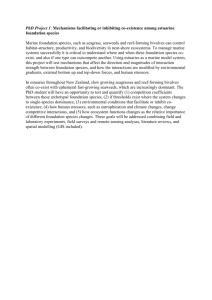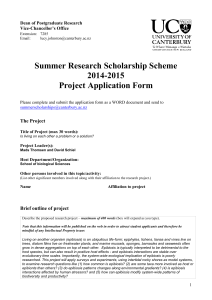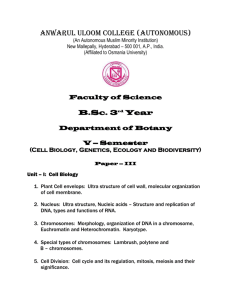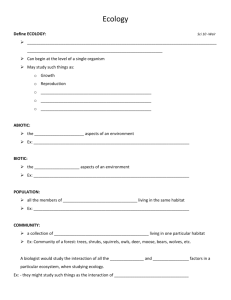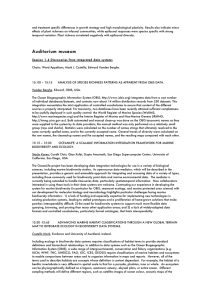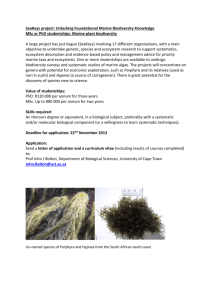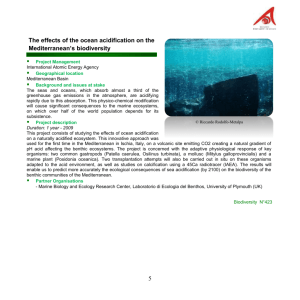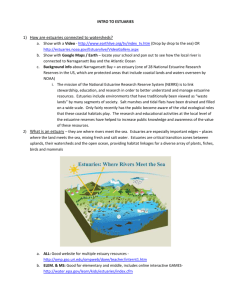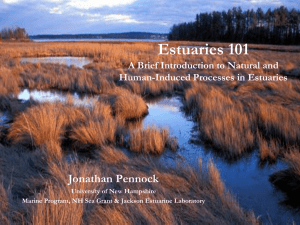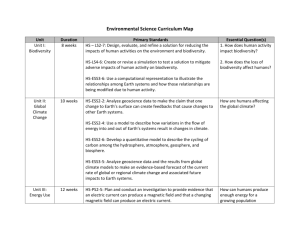The Project - University of Canterbury
advertisement
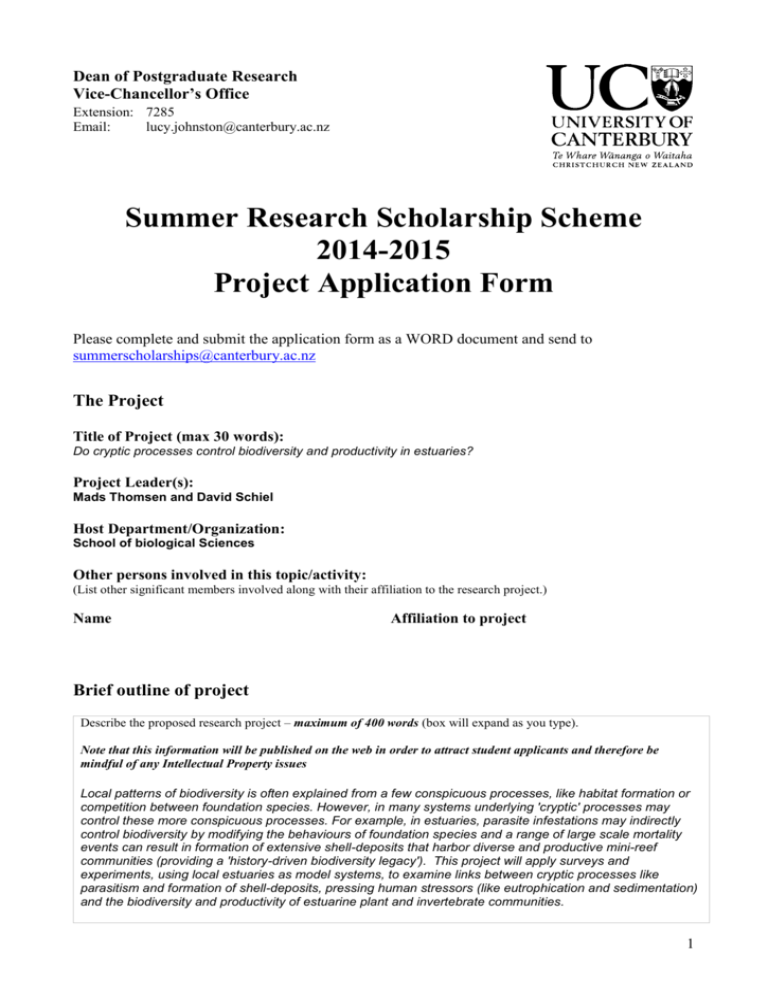
Dean of Postgraduate Research Vice-Chancellor’s Office Extension: 7285 Email: lucy.johnston@canterbury.ac.nz Summer Research Scholarship Scheme 2014-2015 Project Application Form Please complete and submit the application form as a WORD document and send to summerscholarships@canterbury.ac.nz The Project Title of Project (max 30 words): Do cryptic processes control biodiversity and productivity in estuaries? Project Leader(s): Mads Thomsen and David Schiel Host Department/Organization: School of biological Sciences Other persons involved in this topic/activity: (List other significant members involved along with their affiliation to the research project.) Name Affiliation to project Brief outline of project Describe the proposed research project – maximum of 400 words (box will expand as you type). Note that this information will be published on the web in order to attract student applicants and therefore be mindful of any Intellectual Property issues Local patterns of biodiversity is often explained from a few conspicuous processes, like habitat formation or competition between foundation species. However, in many systems underlying 'cryptic' processes may control these more conspicuous processes. For example, in estuaries, parasite infestations may indirectly control biodiversity by modifying the behaviours of foundation species and a range of large scale mortality events can result in formation of extensive shell-deposits that harbor diverse and productive mini-reef communities (providing a 'history-driven biodiversity legacy'). This project will apply surveys and experiments, using local estuaries as model systems, to examine links between cryptic processes like parasitism and formation of shell-deposits, pressing human stressors (like eutrophication and sedimentation) and the biodiversity and productivity of estuarine plant and invertebrate communities. 1 If the project involves work away from the University campus (e.g., at fieldwork sites) please detail all locations. This project involve field work in estuaries; possible field sites include the Avon Heathcote estuary and estuaries on Banks Peninsula (daytrips). If the student be required to work outside of normal university hours (8am-5pm) please provide details The project will involve field work carried out during low tide. The student should therefore be prepared to do occasional field work early morning and early evening. Benefits student will gain from involvement in the project Describe the research experience and skills that the student will acquire through involvement in this research project – maximum of 100 words. The student will be part of a new larger exciting project about positive species interactions in marine systems, learn methods in marine ecology and data analysis, collaborate with highly motivated students and faculty, learn to design and carry out own surveys and experiments and, if the collected data allows for it, be involved in writing and submitting a scientific publication. Specific student requirements Please provide details of all requirements you have for the student to work on this project – for example, if specific courses/experience are necessary. Good background in general ecology and marine ecology. Drivers licence. Health and ability to conduct independent field work in intertidal marine systems. Motivation-driven and loving science and research. We prioritize applicants from students with a clear interest to continue a master project related to this research program. 2


